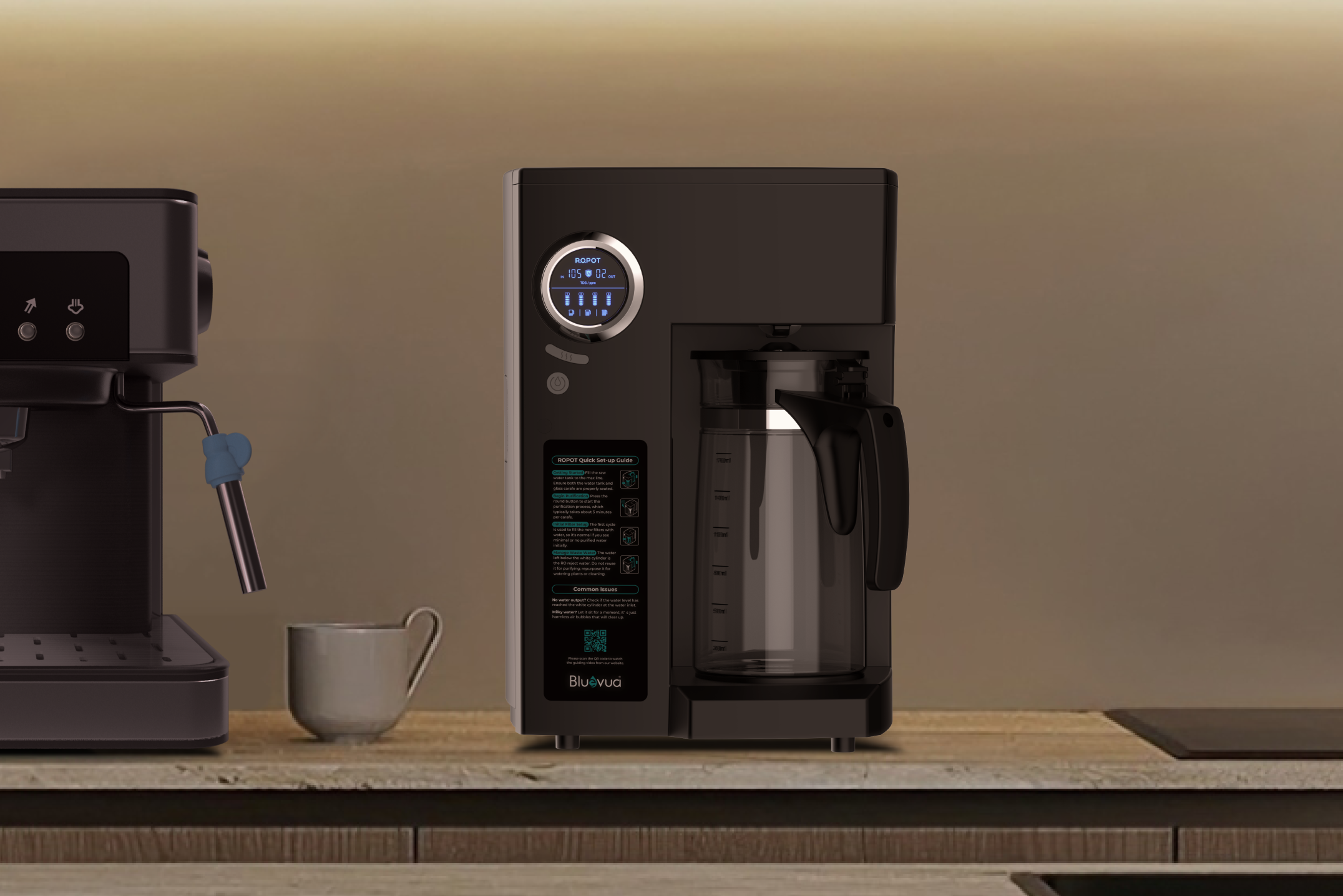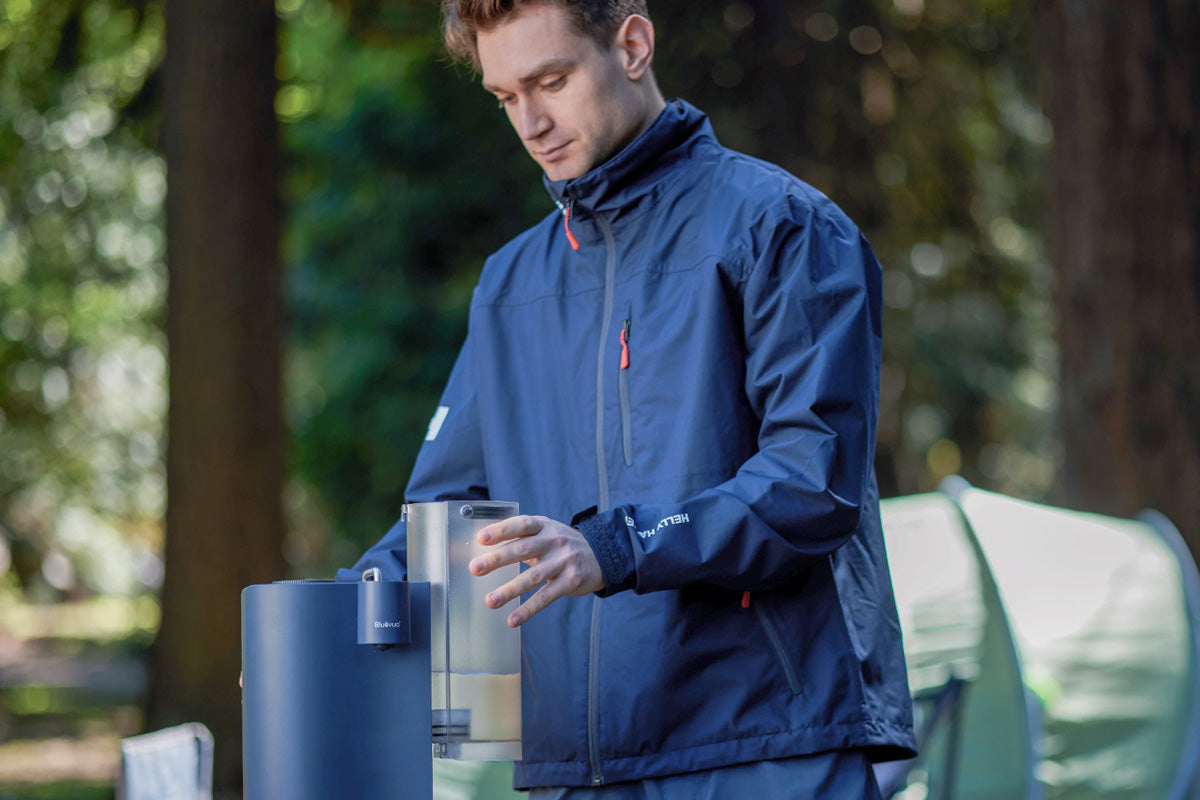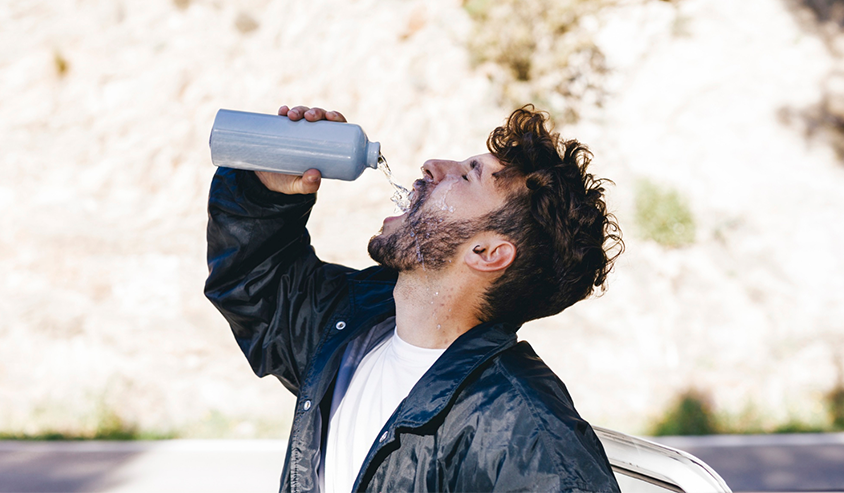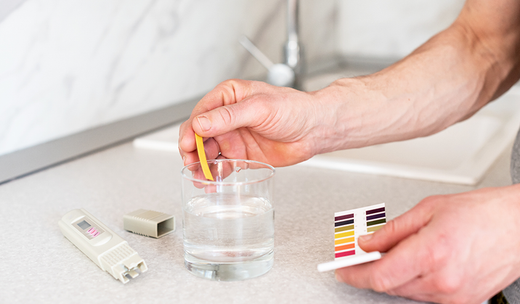Drinking water is normally a healthy habit, but for some people, it can occasionally lead to feelings of nausea. If you've experienced this, you're likely wondering why it happens and what you can do about it. Understanding the underlying causes is key to finding the right solutions.
What Are the Common Causes of Water-Induced Nausea?
1. Poor untreated water quality
Contamination in unfiltered water is one of the common culprits behind nausea after drinking water. When water contains harmful chemicals, microorganisms, or pollutants, it can irritate the digestive system and lead to nausea.
- Chemical pollution: Tap water may contain pesticides, heavy metals, and other harmful substances that can cause gastrointestinal issues over time. For example, high levels of lead can lead to abdominal pain and nausea.
- Microorganisms: Contaminated water with parasites like Giardia or bacteria like E. coli can cause illnesses such as gastroenteritis, resulting in nausea, vomiting, and diarrhea. This is more common when drinking untreated water from natural sources.
- Chlorine and its byproducts: While chlorine is used to disinfect tap water, it can cause some people to feel nauseated or dizzy. Chlorination byproducts like trihalomethanes have been linked to digestive problems.
- Odors: Strange smells in your water indicate the presence of contaminants that might upset your stomach. Sulfur, for example, can give water a rotten egg smell and make you feel ill.

2. Overhydration disrupts the digestive system
A healthy human body typically excretes between 1450 and 2800 ml of water daily. This includes 500 to 1400 ml through the kidneys, 450 to 900 ml through sweat, and 350 ml through breathing. To maintain a proper balance of water intake and output, the body generally requires 2500 to 2700 ml of water each day.
While staying hydrated is crucial for overall health, overhydration—drinking excessive amounts of water too quickly, particularly on an empty stomach, might overwhelm your digestive system and cause nausea. Your body struggles to absorb it all at once, which causes a sensation of fullness and stomach discomfort. This might make the water sloshy in your stomach and produce nausea. To prevent overhydration, time your water intake and pay attention to your body's thirst signals. Sipping water regularly, rather than consuming large amounts at once, allows your body to stay properly hydrated without causing unnecessary strain on your digestive system.

3. Extreme Water temperature
The temperature of the water you drink can also play a role in causing nausea; some people are more sensitive to water temperature. Drinking water that is too cold might shock your digestive system and cause stomach trouble and nausea. This is so because cold water can constrict your blood vessels, slowing down digestion and generating stomach discomfort.
On the other hand, very hot drinking water might aggravate the sensitive digestive system and induce nausea. Hot water can activate the vagus nerve, which regulates many aspects of your digestive tract. An overstimulation of this nerve could cause nausea and vomiting.
To avoid temperature-related nausea, it's best to drink water that's at room temperature or slightly cool. This allows your body to absorb the water more easily without causing any sudden shocks or disruptions to your digestive system. If you prefer warm water, make sure it's not scalding hot to prevent irritation.
Health-Related Factors Behind Feeling Nauseous from Water
Gastrointestinal problems
Digestive issues like gastritis, an inflammation of the stomach lining, or indigestion can make you more prone to feeling nauseated when drinking water. These conditions can be caused by factors such as excessive alcohol consumption, stress, bacterial infections, or eating habits like consuming fatty or spicy foods.
Pregnancy
Morning sickness during pregnancy, especially in the first trimester, can make it difficult to keep fluids down, including water. Hormonal changes, particularly the increase in human chorionic gonadotropin (hCG), can heighten sensitivity to nausea and vomiting. To stay hydrated, pregnant women should drink small amounts of water frequently throughout the day.

Side effects of medications
Some medications can cause nausea as a side effect, making drinking water challenging. Antibiotics like erythromycin, pain medications such as NSAIDs, and chemotherapy drugs are known to cause nausea and vomiting. If you suspect a medication is causing your water-related nausea, consult your healthcare provider. They may suggest taking the medication with food, adjusting the dosage, or exploring alternative treatment options.
How Clean Water Helps Prevent Nausea

- The Importance of Improving Water Quality: Unclean water is a major cause of gastrointestinal discomfort. Tap water in many areas may contain harmful substances like chlorine, microorganisms, pesticides, and lead, which can irritate the digestive system and trigger nausea. This risk is especially high when drinking large quantities of untreated water. Ensuring the water we consume is clean and safe is essential for maintaining digestive health and preventing discomfort.
- How Countertop RO Systems Ensure Clean Water: countertop RO systems can eliminate up to 99.9% of pollutants, ensuring clean and fresh-tasting water. Install a reverse osmosis (RO) water filtration system to remove contaminants, impurities, and unpleasant odors or tastes that could be triggering your nausea. Additionally, many RO systems include a remineralization filter that restores essential minerals like calcium and magnesium, balancing the pH and enhancing the taste. This ensures the water is not only safe but also pleasant to drink, promoting overall comfort.

Tips for Hydration and Digestive Comforts
Adjust drinking habits
- Sip water slowly and steadily throughout the day instead of gulping large amounts at once.
- Allow your body to absorb the water gradually without overwhelming your digestive system.
- Experiment with water temperature to find what works best for you (room temperature, cool, or slightly warm).
- Try adding a slice of lemon or ginger to your water to help ease nausea.
Observe diet and medications
- Keep a food and symptom diary to identify potential triggers, such as certain foods or drinks that don't mix well with water intake.
- Avoid consuming water immediately after eating spicy, fatty, or acidic foods that may irritate your digestive system.
- If you suspect a medication is causing your water-related nausea, consult your healthcare provider for guidance on timing your water intake or exploring alternative treatments.

Manage Nausea from Drinking Water
Poor water quality, inappropriate drinking habits, and personal health issues like gastrointestinal difficulties or pregnancy are some of the several causes of nausea after drinking water. Think about putting in a reverse osmosis water filter system to eliminate the contaminants that irritate your digestive system. By filtering out these potentially harmful substances, an RO system guarantees that your drinking water is pure, fresh, and free of elements that possibly aggravate your stomach. Maintaining gastrointestinal health also depends on developing conscious drinking habits, including slow water intake and discovering the appropriate water temperature for your body. Combining a premium water quality with appropriate hydration strategies will help you improve your general well-being and better protect your digestive system.





Hinterlasse einen Kommentar
Alle Kommentare werden vor der Veröffentlichung geprüft.
Diese Website ist durch hCaptcha geschützt und es gelten die allgemeinen Geschäftsbedingungen und Datenschutzbestimmungen von hCaptcha.